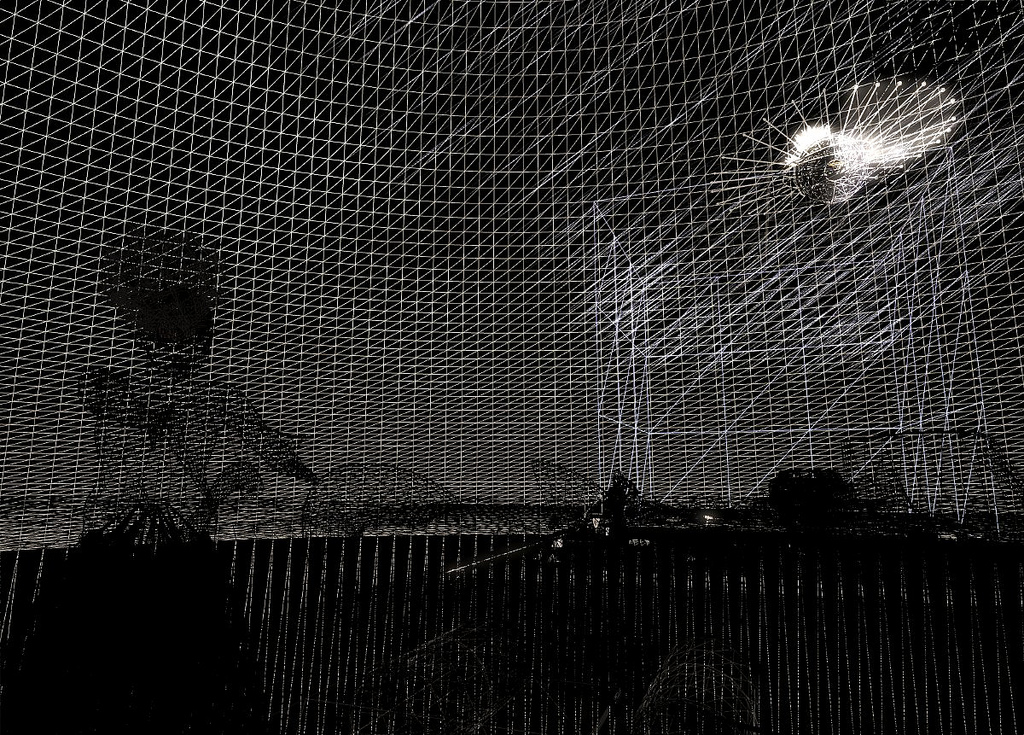Afrofuturism: The Beginning of the End for Stereotypical Black People in Media?
This article has a set of discussion questions tailored for classroom use. Click here to download them. To see a full list of articles with discussion questions and other resources, visit our “Educational Resources” page.
The box office hit Black Panther is important for a variety of reasons. Not only is it the next story in the revolutionary Marvel Cinematic Universe, but its racial implications are significant as well. A film showing a black superhero who is one of the wealthiest and smartest characters in the Marvel Universe being presented to the masses is powerful in regards to representation. But what might not be so well known among the masses of moviegoers that saw Black Panther is the genre that the film is rooted in. The Marvel Studios film has shed light on Afrofuturism, a genre where writing, film, and even music are shown through the lens of an African American. According to The Washington Post, Afrofuturism incorporates science fiction and fantasy into the history of the African diaspora. It ranges from writing to music and portrays black people in a more positive light, framing its black characters as incredibly intelligent and as visionaries. Although the Afrofuturism movement has acted as a catalyst for the empowerment of black people, should it be an indicator to white people to cast aside the stigmas and negative stereotypes associated with black people?
The term “Afrofuturism’ was first coined by Mark Derry, a white author who defined Afrofuturism in his essay, “Black to the Future” as “speculative fiction that treats African American themes and addresses African American concerns in the context of 20th century technoculture–and, more generally, African American signification that appropriates images of technology and a prosthetically enhanced future.” What’s especially important about Afrofuturism, which separates it from mainstream science fiction, is that the concept is rooted in ancient African traditions, creating a contrast between the past and the future that manifests into utopian realms with futuristic technology that all come from the minds of black people.
Even before Afrofuturism was an established term, it was present in mainstream society. For instance, in regards to music, Sun Ra, a musical artist who made music from the mid 1930’s to the 1990’s, was known for combining space sounds and jazz to create a futuristic sort of sound. Contemporary music artists such as Erykah Badu and Janelle Monae have followed in Sun Ra’s innovate footsteps; for example, Badu uses elaborate and unconventional images in her album covers and music videos that demonstrate intersections of art and the future.
In addition to Badu, much of Janelle Monae’s music exemplifies an Afrofuturist influence. One of her most recent works to do this comes from a preview that Monae showed of Dirty Computer, the name of her new album and accompanying short film. In the 30 second-clip of the Dirty Computer film, images of black people operating futuristic technology and driving in flying cars are reminiscent of a standard Afrofuturist utopian society, but other clashing images of violence indicate a dystopian one. Either way, Monae’s most recent visual, as well as her previous music, demonstrates Afrofuturist thought.
Obviously, Afrofuturism is not limited to music and extends its reach to mediums such as film. But Black Panther is not the only film to display Afrofuturist ideals. Brown Girl Begins, a film directed by Sharon Lewis, is set in a post-apocalyptic setting where seemingly powerful characters are dressed in what seems to be clothing influenced by African garb. There are also scenes with the protagonist, a black woman creating force fields, demonstrating an intersection of African influence and technology.
In literature, science fiction novelist Olivia E. Butler uses Afrofuturist elements in her stories, often featuring black women protagonists who navigate futuristic settings that incorporate some kind of magical realism. For example, Butler’s 1987 book, Dawn, focuses on a black woman who teams up with aliens in order to bring back the human race after a nuclear war. The book is now being developed into a television show. A story such as Butler’s being told is important exposure not just for black people, but black women as well. It challenges the stereotypes associated with black people, and therefore challenges the prejudices that people have towards black people.
Speaking of stereotypes, although Afrofuturism depicts African Americans in a more positive light in media, more common images of African Americans in media contrasts an Afrofuturist outlook. These stereotypical images are ultimately internalized and influence one’s views. If someone were to ask you to close your eyes and envision a drug addict, what image would your mind create? Would you see a man or a woman? A white person or a black person? Even though statistics show that African American youth are less likely to use tobacco, alcohol, or drugs compared to White or Hispanic Americans, many people might assume that it is indeed black youth who consume more drugs.
This stereotypical phenomenon can be partially credited to the media and the images that appear in the media that the masses consume. They often foster stereotypes about blacks through outlets such as television. An example would be The Wire, a television show about the drug scene in Baltimore that ran from the mid to late 2000’s. The show featured African Americans as gangster and drug dealers. The gangster and drug dealer archetypes on The Wire can cause people to attribute what they see on television to real life, even if the people they interact with in real life aren’t in way like what they see on television.
With that said, can the rise of the Afrofuturism change common perceptions about black people? The success of Black Panther has not only shed light on Afrofuturism and other works within the genre, but it also has shown Hollywood that films with a focus on African Americans can be successful. After all, the film just reached $1 billion in ticket sales worldwide. Maybe Black Panther’s success will foster the creation of more Afrofuturist projects. But as always when it comes to change, it never occurs overnight, and if the rise of Afrofuturism can change perceptions of black people in media, one can expect its progression to be at a snail’s pace.





